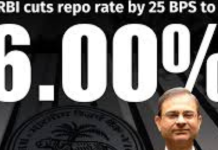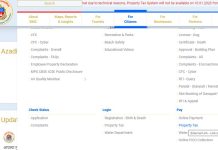When it comes to financing your dream home, choosing the right lender is crucial. Two primary options are banks and housing finance companies (HFCs). Both offer home loans, but they differ in several aspects, including interest rates, loan terms, and eligibility criteria. This article will compare home loans from banks and housing finance companies to help you make an informed decision.
Home Loans from Banks
1. Interest Rates and Fees
- Competitive Interest Rates: Banks typically offer competitive interest rates on home loans. With a range of options, you can often find a rate that fits your financial situation. Rates are influenced by factors like the central bank’s repo rate and the bank’s internal policies.
- Processing Fees: Banks may charge processing fees that can be higher compared to HFCs. However, these fees are often negotiable based on your relationship with the bank and your credit profile.
2. Loan Amount and Tenure
- Higher Loan Amounts: Banks generally provide higher loan amounts due to their extensive financial resources. This is advantageous if you’re purchasing a high-value property.
- Flexible Tenure: Banks offer flexible loan tenures, often ranging from 5 to 30 years, allowing you to choose a repayment period that suits your financial goals.
3. Eligibility Criteria
- Stringent Criteria: Banks often have stringent eligibility criteria, including higher credit score requirements and stable income proofs. This ensures that the borrower has a solid repayment capability.
- Documentation: The documentation process can be rigorous, requiring comprehensive paperwork such as income proofs, property documents, and credit history.
4. Customer Service and Accessibility
- Branch Access: Banks have extensive branch networks, providing easy access for loan applications, disbursements, and customer service.
- Digital Platforms: Most banks offer online applications and account management, making the loan process more convenient.
Home Loans from Housing Finance Companies (HFCs)
1. Interest Rates and Fees
- Attractive Interest Rates: HFCs often offer competitive interest rates, sometimes lower than banks. They may also offer promotional rates or discounts for new customers.
- Processing Fees: HFCs generally have lower processing fees compared to banks. They might also offer lower charges for administrative tasks.
2. Loan Amount and Tenure
- Loan Amount Flexibility: HFCs may be more flexible in providing loan amounts, especially for non-standard properties like plots or homes under construction.
- Longer Tenure Options: HFCs might offer longer tenure options, allowing for more extended repayment periods, which can ease the monthly financial burden.
3. Eligibility Criteria
- Flexible Eligibility: HFCs tend to have more relaxed eligibility criteria. They are often more accommodating to individuals with non-traditional income sources or lower credit scores.
- Simplified Documentation: The documentation process with HFCs can be more straightforward, with fewer requirements compared to banks.
4. Customer Service and Accessibility
- Specialized Service: HFCs specialize in home loans and often provide personalized services. They might offer more tailored financial solutions and support throughout the loan process.
- Online and Offline Options: HFCs usually provide both online and offline application processes, ensuring convenience and accessibility.
Advantages of Home Loans from Banks
- Competitive Interest Rates
- Banks typically offer competitive interest rates due to their larger financial base.
- Rates are often linked to the central bank’s repo rate, potentially lowering over time.
- Higher Loan Amounts
- Banks usually provide higher loan amounts, suitable for high-value properties.
- Extensive financial resources allow banks to fund larger loans.
- Flexible Loan Tenure
- Banks offer flexible loan tenures, usually ranging from 5 to 30 years.
- Borrowers can choose a tenure that fits their financial plans and repayment capacity.
- Comprehensive Customer Service
- Banks have extensive branch networks, making it easy for customers to access services.
- Many banks provide robust online and mobile banking platforms for convenience.
- Strong Regulatory Oversight
- Banks are regulated by the Reserve Bank of India (RBI), ensuring transparency and reliability.
- This regulatory oversight adds a layer of security for borrowers.
Disadvantages of Home Loans from Banks
- Stringent Eligibility Criteria
- Banks have strict eligibility criteria, including high credit score requirements and stable income proofs.
- This can exclude potential borrowers with non-traditional income sources or lower credit scores.
- Higher Processing Fees
- Banks often charge higher processing fees compared to HFCs.
- These fees can add to the overall cost of the loan.
- Extensive Documentation
- The documentation process is rigorous, requiring comprehensive paperwork such as income proofs, property documents, and credit history.
- This can be time-consuming and cumbersome for borrowers.
- Bureaucratic Processes
- The loan approval process can be slow due to bureaucratic procedures.
- This can delay the disbursement of funds, especially if additional documentation is required.
Advantages and Disadvantages of Home Loans from Housing Finance Companies (HFCs)
Advantages of Home Loans from HFCs
- Flexible Eligibility Criteria
- HFCs tend to have more relaxed eligibility criteria, accommodating various income sources and lower credit scores.
- This inclusivity makes HFCs a viable option for a broader range of borrowers.
- Attractive Interest Rates
- HFCs often offer competitive and sometimes lower interest rates compared to banks.
- They may also provide promotional rates or discounts for new customers.
- Lower Processing Fees
- HFCs generally have lower processing fees compared to banks.
- This can reduce the overall cost of the loan.
- Simplified Documentation
- The documentation process with HFCs is often more straightforward, with fewer requirements.
- This can expedite the loan approval and disbursement process.
- Personalized Service
- HFCs specialize in home loans and often provide personalized services.
- Borrowers can receive tailored financial solutions and support throughout the loan process.
Disadvantages of Home Loans from HFCs
- Potentially Higher Interest Rates Over Time
- Interest rates offered by HFCs may fluctuate more frequently than those of banks.
- In some cases, initial rates may be higher than those offered by banks.
- Lower Loan Amounts
- HFCs might offer lower loan amounts compared to banks.
- This can be a limitation for borrowers looking to finance high-value properties.
- Limited Branch Network
- HFCs typically have a smaller branch network compared to banks.
- This can make it less convenient for borrowers to access services in certain areas.
- Variable Customer Service Quality
- The quality of customer service can vary significantly among HFCs.
- Borrowers may experience less consistency in service compared to banks.
- Less Regulatory Oversight
- HFCs are regulated by the National Housing Bank (NHB), but the oversight may not be as stringent as that of banks.
- This can introduce variability in the security and reliability of services
| Name of Lender | Up to Rs. 30 Lakh | Above Rs. 30 Lakh to Rs. 75 Lakh | Above Rs. 75 Lakh |
|---|---|---|---|
| SBI | 8.50% – 9.85% p.a. | 8.50% – 9.85% p.a. | 8.50% – 9.85% p.a. |
| HDFC Bank Limited | 8.70% p.a. onwards | 8.70% p.a. onwards | 8.70% p.a. onwards |
| LIC Housing Finance | 8.50% – 10.35% p.a. | 8.50% – 10.55% p.a. | 8.50% – 10.75% p.a. |
| ICICI Bank | 8.75% p.a. onwards | 8.75% p.a. onwards | 8.75% p.a. onwards |
| Kotak Mahindra Bank | 8.70% p.a. onwards | 8.70% p.a. onwards | 8.70% p.a. onwards |
| PNB Housing Finance | 8.50% – 14.50% p.a. | 8.50% – 14.50% p.a. | 8.50% – 11.45% p.a. |
| Punjab National Bank | 8.45% – 10.25% p.a. | 8.40% – 10.15% p.a. | 8.40% – 10.15% p.a. |
| Bank of Baroda | 8.40% – 10.65% p.a. | 8.40% – 10.65% p.a. | 8.40% – 10.90% p.a. |
| IDFC First Bank | 8.85% p.a. onwards | 8.85% p.a. onwards | 8.85% p.a. onwards |
| L&T Finance Limited | 8.65% p.a. onwards | 8.65% p.a. onwards | 8.65% p.a. onwards |
| Tata Capital Housing Finance | 8.75% p.a. onwards | 8.75% p.a. onwards | 8.75% p.a. onwards |
| Federal Bank | 8.80% p.a. onwards | 8.80% p.a. onwards | 8.80% p.a. onwards |
| Axis Bank | 8.75% – 13.30% p.a. | 8.75% – 13.30% p.a. | 8.75% – 9.65% p.a. |
| Godrej Housing Finance | 8.55% p.a. onwards | 8.55% p.a. onwards | 8.55% p.a. onwards |
Frequently Asked Question:
A1: Banks typically offer competitive interest rates and flexible loan terms, while housing companies may provide specialized products with tailored benefits. Housing companies might also offer lower processing fees or quicker approval times.
A2: Consider factors like interest rates, loan terms, processing fees, and additional benefits. Compare offers from both banks and housing companies to find the option that best suits your financial situation
A3: Yes, many lenders are open to negotiation on terms such as interest rates, processing fees, and loan tenure. It’s worthwhile to discuss your options and try to secure more favorable terms
A4: Common documents include proof of identity, address proof, income proof (salary slips, tax returns), property documents, and bank statements. The exact requirements may vary by lender



































